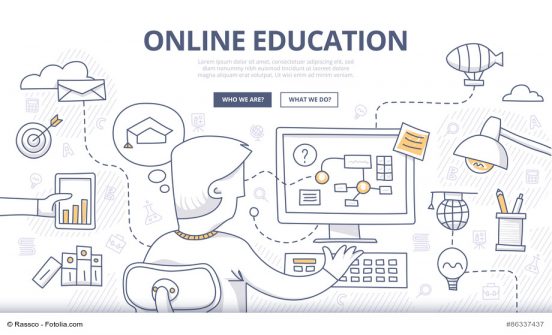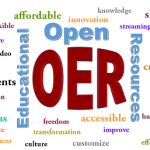Due to the outbreak of the COVID-19 many schools have started to teach through the Internet. Online education is gradually becoming familiar and used by everyone. Through these two weeks of study, I learned The Floe Inclusive Learning Design Handbook and FLOE (flexible learning for open education). The Floe Inclusive Learning Design Handbook is a free Open Educational Resource (OER) and aimed to help scholars and resource creators to create personal and diverse educational resources. Floe provides personalized materials for each scholar according to their learning style. And by providing materials to improve more learning methods for different scholars. The three important content I would like to talk about are inclusive and accessibility, cognitive needs, and Design for Privacy.
Inclusive and Accessibility
 Accessibility is the ability of a system or environment to adapt to everyone’s needs and preferences. The availability and inclusiveness of resources are important for scholars. Every scholar has a different learning environment, personal preferences, and personal characteristics. Inclusion and accessibility are different. He is providing scholars with different kinds of tools and functions so that users can choose their own functions more for their own situations. For example, there are 5,651 languages in the world. Learners in different languages can choose the language they know to learn. In addition, for those with disabilities, if they are blind, he can learn by converting text to audio. This greatly helps learners to use personalized learning methods.
Accessibility is the ability of a system or environment to adapt to everyone’s needs and preferences. The availability and inclusiveness of resources are important for scholars. Every scholar has a different learning environment, personal preferences, and personal characteristics. Inclusion and accessibility are different. He is providing scholars with different kinds of tools and functions so that users can choose their own functions more for their own situations. For example, there are 5,651 languages in the world. Learners in different languages can choose the language they know to learn. In addition, for those with disabilities, if they are blind, he can learn by converting text to audio. This greatly helps learners to use personalized learning methods.
Cognitive Needs
Because the cognitive level of each learner is different, in order to make FLOE more accessible and used by more people. We should take this into consideration. So, making the content and text of the article simpler and making the user’s interface simpler are important and useful. This allows users to operate and acquire effective knowledge more clearly.
Design for Privacy
 There is a saying that the Internet has memory. With the development of the information age, often some websites require you to provide personal information in order to obtain more information. But this also provides many criminals with the opportunity to commit crimes. They can steal your personal information from the Internet and even use this information to cheat money. Therefore, the transparency and security of personal privacy are very important. It is also effective to minimized collect users’ information and support information portability. Not collecting user information is useful in protecting personal privacy. In addition, the user also needs to grasp the use and operation rights of his personal information.
There is a saying that the Internet has memory. With the development of the information age, often some websites require you to provide personal information in order to obtain more information. But this also provides many criminals with the opportunity to commit crimes. They can steal your personal information from the Internet and even use this information to cheat money. Therefore, the transparency and security of personal privacy are very important. It is also effective to minimized collect users’ information and support information portability. Not collecting user information is useful in protecting personal privacy. In addition, the user also needs to grasp the use and operation rights of his personal information.
I have difficulty in understanding the EPUB and metadata. It may be that the content and explanation of these two ideas are complicated. The contents also use many professional words which make me more confused.
Question
The question I would like to ask is How can learners find learning materials and methods that are more suitable for them while providing the least amount of personal privacy?
Picture Reference
https://images.app.goo.gl/Mdi37yCeMAL7n4858
https://images.app.goo.gl/wKeHgiiMD8MNJoSy7





